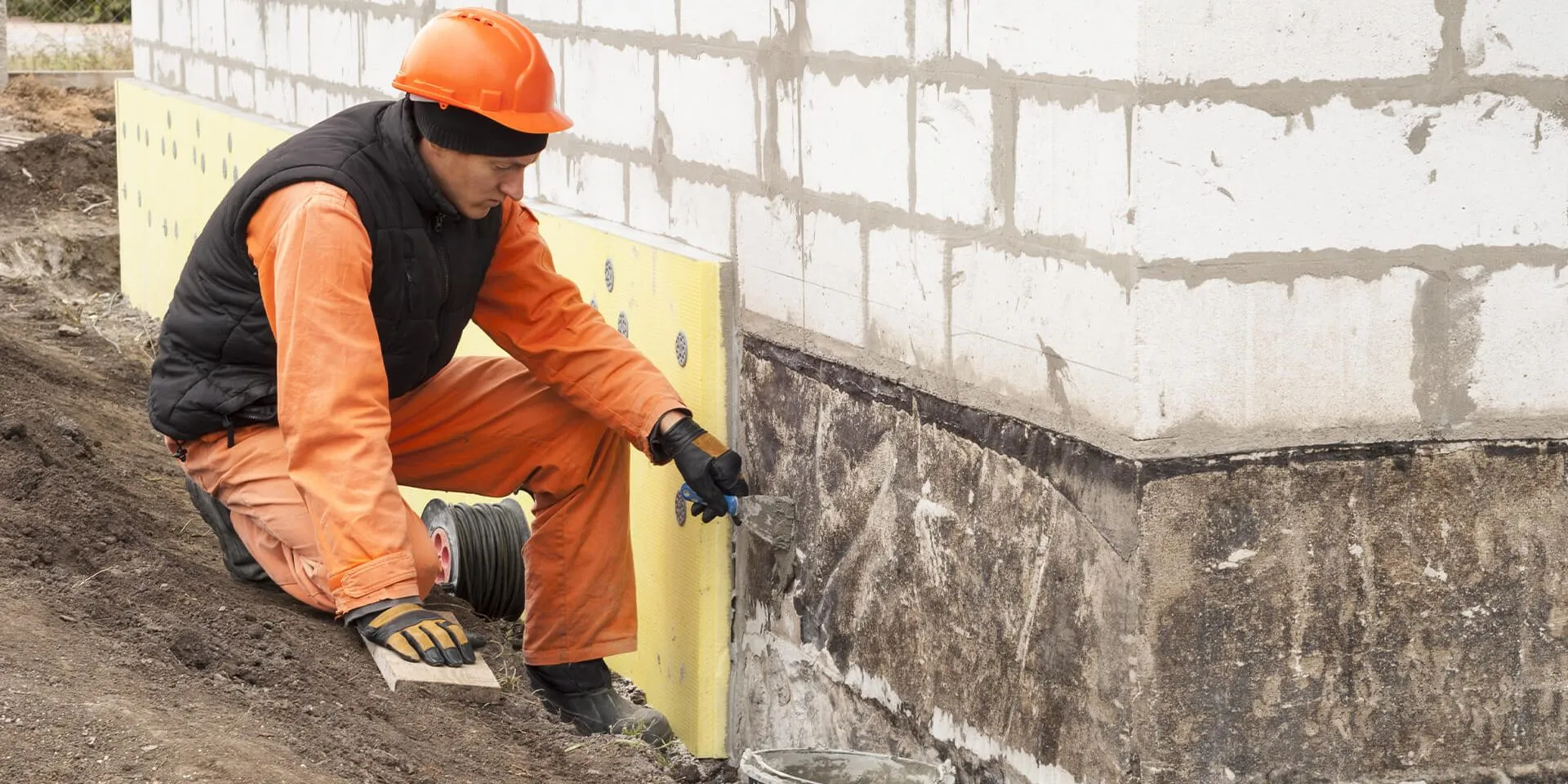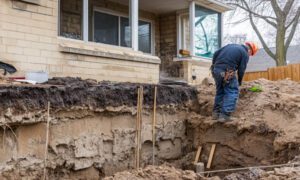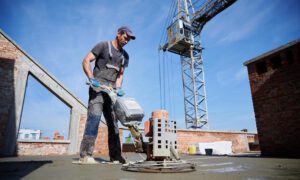The foundation of a building is its most critical structural component. It supports the entire weight of the structure and ensures stability over time. Unfortunately, foundations can develop problems due to a variety of reasons, and neglecting these issues can lead to severe damage to your property. That’s where foundation repair comes into play — it’s an essential service that helps maintain the integrity and safety of any building.
In this article, we’ll explore why foundation repair is so important, the common causes of foundation problems, warning signs that indicate a need for repair, and the methods used to fix foundation issues effectively. Understanding these factors can help homeowners and property managers take proactive steps to protect their investment.
Why Foundation Repair Is Crucial for Your Property
Your building’s foundation acts as the base upon which everything else rests. If this base becomes compromised, the effects ripple throughout the entire structure. Foundation problems can lead to:
- Structural instability: Cracks in walls, uneven floors, and doors or windows that don’t close properly.
- Water intrusion: Damaged foundations can allow water to seep into basements or crawl spaces, leading to mold, mildew, and deterioration.
- Decreased property value: Foundation issues are a red flag for potential buyers and can significantly reduce your home’s market worth.
- Safety hazards: A weakened foundation can eventually cause partial or total collapse of parts of the building.
Addressing foundation problems early with professional foundation repair prevents these complications and helps preserve your home’s strength and value.
Common Causes of Foundation Damage
Understanding what causes foundation damage can help property owners anticipate problems and take preventive measures. Some of the most common causes include:
1. Soil Movement and Settlement
The soil beneath a foundation can expand, contract, or shift due to moisture changes, causing the foundation to move or settle unevenly. Clay soils are particularly notorious for this behavior.
2. Water Damage
Poor drainage, leaking pipes, or heavy rainfall can saturate the soil around the foundation, weakening it and causing cracks or shifts.
3. Tree Roots
Large trees planted too close to a building can exert pressure on the foundation as roots grow and spread underground.
4. Poor Construction
Foundations built with inadequate materials, poor workmanship, or improper design may fail prematurely.
5. Environmental Conditions
Earthquakes, flooding, or extreme temperature changes can all affect foundation stability.
Signs Your Property Needs Foundation Repair
Early detection is key to preventing costly repairs. Some warning signs that suggest foundation problems include:
- Cracks in walls or floors: Vertical, horizontal, or stair-step cracks can indicate shifting or settling.
- Uneven or sloping floors: Floors that are no longer level are a clear symptom.
- Doors and windows that stick or don’t close properly: Changes in frame alignment often accompany foundation movement.
- Gaps between walls and ceiling or floor: Spaces appearing where walls meet other structural elements.
- Basement or crawl space moisture: Water intrusion can be both a cause and effect of foundation issues.
- Exterior foundation cracks: Visible damage on the outside is a sign to call a professional immediately.
If you notice any of these signs, scheduling a foundation inspection is highly recommended.
How Foundation Repair Works
Foundation repair methods vary depending on the nature and severity of the damage. Professionals typically conduct a thorough evaluation before recommending the most appropriate solution. Common foundation repair techniques include:
1. Piering or Underpinning
This method involves inserting steel or concrete piers deep into stable soil layers to lift and stabilize the foundation. It is effective for settling caused by weak or shifting soils.
2. Slabjacking
Also called mudjacking, this technique pumps a mixture under a sunken concrete slab to raise it back into position. It is often used for driveways, sidewalks, or slabs.
3. Crack Repair
Minor cracks in foundation walls or floors can be sealed with epoxy or polyurethane injections, preventing water intrusion and further deterioration.
4. Drainage Correction
Installing or repairing drainage systems like French drains, gutters, or sump pumps helps divert water away from the foundation, mitigating moisture-related damage.
5. Soil Stabilization
In some cases, injecting chemicals or grout into the soil around the foundation can improve its strength and prevent movement.
Each of these methods requires specialized skills and equipment to ensure long-term results.
The Cost and Value of Foundation Repair
Foundation repair is often perceived as expensive, but it is a crucial investment in the safety and longevity of your property. The cost varies based on the extent of the damage, the repair method used, and the size of the building.
While some repairs can be done for a few thousand dollars, major repairs may cost more. However, ignoring foundation issues can lead to exponentially higher expenses down the line, including damage to walls, floors, and utilities.
Ultimately, professional foundation repair protects your investment, prevents safety risks, and can even improve your property’s resale value.
Preventive Measures to Protect Your Foundation
While some foundation problems are unavoidable, there are several steps homeowners can take to reduce risk:
- Maintain consistent soil moisture levels by watering landscaping during dry spells and ensuring proper drainage.
- Keep gutters and downspouts clean and direct water away from the foundation.
- Avoid planting large trees or shrubs near the foundation to minimize root pressure.
- Inspect your foundation regularly for cracks or signs of movement.
- Address plumbing leaks promptly to avoid soil saturation.
- Install or maintain sump pumps and drainage systems in basements and crawl spaces.
By combining these preventive actions with timely repairs, homeowners can prolong the life of their foundation and avoid costly structural problems.
Why Professional Foundation Repair Is the Best Choice
Foundation repair is a complex, technical task that requires expertise and experience. Attempting DIY fixes or hiring unqualified contractors can worsen the problem or result in incomplete repairs.
Certified foundation repair specialists:
- Conduct comprehensive inspections using advanced tools and methods.
- Diagnose the root causes accurately.
- Recommend appropriate repair techniques tailored to the specific situation.
- Use quality materials and proven methods for durable results.
- Offer warranties and guarantees for their work.
Choosing professional foundation repair gives you peace of mind and protects your home for the long term.
Conclusion
Your home’s foundation is literally the base on which your life is built. Recognizing the importance of foundation repair and taking action when needed safeguards your property’s structural integrity, enhances safety, and preserves value. Whether you notice cracks, uneven floors, or other warning signs, consulting foundation repair professionals is the best way to diagnose issues and secure effective, lasting solutions.
Addressing foundation problems early, investing in quality repairs, and practicing preventative maintenance ensures your home remains stable and secure for generations to come. Don’t underestimate the power of a strong foundation—it truly is the cornerstone of your property.



































